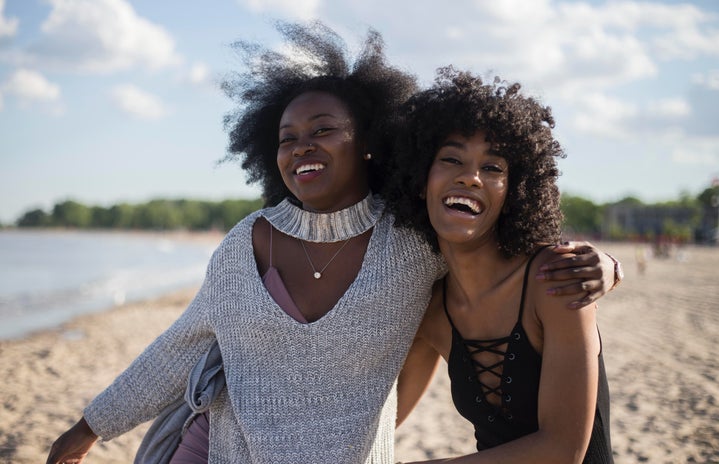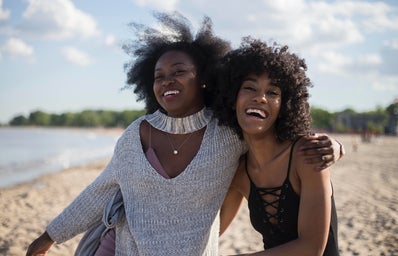A few years ago, any girl wearing Ugg boots and leggings with a Starbucks cup in hand was deemed a “basic b*tch.” The defining characteristic of a “basic b*tch” is that she likes what everyone else likes, wears popular clothing brands and listens to the current Top 40 hits. She is the direct opposite of a “hipster,” which, coincidentally, is also an insult. I mean, is there a way for a girl to win? Probably not.
The term “basic b*tch” is still common enough to be used in conversation, although it packs less of a punch nowadays. Most girls shrug it off with a laugh and carry on with their day, enjoying their pumpkin spice lattes and comfy clothes without much perturbation. After all, there is no harm in liking things that are popular. Right?
“Basic” is one of many terms used to categorize and stereotype girls. Similar phrases are consistently developing and get thrown around haphazardly, a new, unimaginative insult or joke made at the expense of young girls always on the rise and which mocks them for engaging in harmless activities. Now, a new term is infiltrating popular culture: “VSCO girl.”
The name refers to VSCO, a photo-editing app that features filters, various photo editing tools, and a space to post photos without the pressures of comments or likes. Teenage girls with smartphones and “artsy” personalities make up the majority of VSCO’s users. VSCO girls, differentiated from the general users of the app, are supposedly characterized by their colorful hair scrunchies, Hydro Flask water bottles decked out with carefully selected stickers featuring environmentally friendly slogans like “save the turtles!” and mixed with an empty, overuse of Twitter slang like “and I oop” and “sksksksk.” If you are a VSCO girl, you likely wear oversized t-shirts, Birkenstocks, and Puka shell necklaces. It is probable that you make friendship bracelets, use Glossier’s clear lip gloss, and always find yourself photo-ready. VSCO girls are also known for being friendly and talkative.
So why is “VSCO girl” an insult? Why do girls feel the need to defend themselves and assure everyone they’re not “like that”? The joke is in the belittling. I’ve never heard it used as a compliment. People have a tendency to criticize girls for no reason, reflecting a certain misogyny that is intertwined with mocking girls for their harmless interests and behaviors. The negative connotations associated with the phrase pressures girls to distance themselves from these associations by claiming they are “not like most girls,” which then begs the question, what’s wrong with most girls?
I am a firm believer that there is nothing wrong with being like most girls. Every romantic movie with a scene that involves the love interest telling the main character he likes her because she’s different from other girls makes me cringe. I want to tell that movie character to run for the hills because any man who says this is inadvertently revealing his lack of respect for women. It doesn’t feel like a compliment because it isn’t — it elevates the receiver while simultaneously putting other women down.
The point is that the cacophony of phrases thrown at us can make it difficult to exist as we are. Girls are pushed to constantly define and redefine their interests in order to appeal to society’s ever-changing whims, and the widespread insults used against young women which have been disguised as lighthearted jokes are abrasive and downright uncool. Being a teenager is hard enough without the constant criticism. VSCO girls may annoy people, but hearing people complain about VSCO girls annoys me.
So, here’s to hoping for a future in which we stop feeding into negativity by shaming people for their benign interests. May we recognize our own prejudices and crush them before they can hurt others. May we let people enjoy harmless things.



